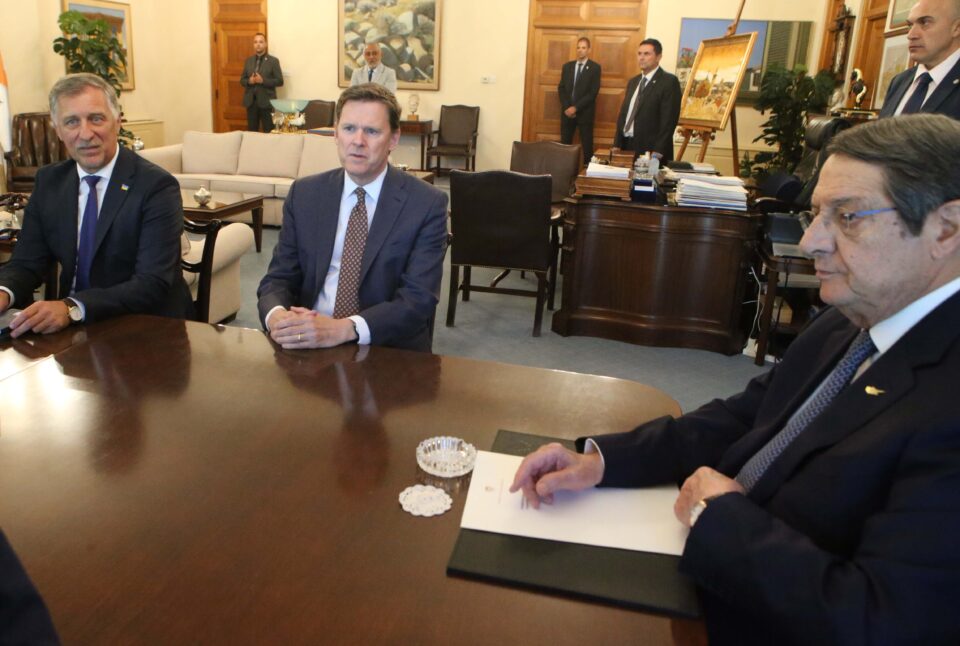The build-up to the next six-monthly UN report on the Secretary-General’s Good Offices Mission and a second on the justifications for extending the Unficyp mandate from the end of July has now begun.
We go through this charade twice a year and have done so for the past 48 years so multiply that by four to get the number of reports over the years. Each time it never fails to prompt a media frenzy.
Will Turkish provocations in Varosha be mentioned? Will the UNSG appoint an envoy? What are the prospects for new talks? Which side will come out more favourably in the reports? The latter always seems to be the most important because point-scoring and the blame game are what matters most to both sides.
As an indication of what the Good Offices report might include, the UN’s Colin Stewart met both leaders on Monday to gauge the current zeitgeist. His takeaway could be described as the understatement of the year so far – that trust is at a low point and without rebuilding it, it will be difficult to move forward with the political process.
It might be cynical to ask when trust might have been at a high point so we could measure how far it has fallen, but being fair-minded, we’ll say 2015 when Nicos Anastasiades and Mustafa Akinci began a new process. But this trust was already shattered by the time the ultimately-failed talks in Crans-Montana took place in June and July 2017.
Now two of the Crans-Montana gang are running for president as ‘independents’, one backed by opposition Akel, and the other by Diko and the third main candidate has the whiff of the status quo about him. Anastasiades is still paying lip-service to a solution and taking the moral high ground each time Turkey comes up with some new ‘revisionist’ statement. He agrees with Stewart that trust is at a low point and is promoting his confidence-building measures (CBMs) as a way to regain it.
Even if any of the Greek Cypriot candidates turned out to be the great hope for a solution in 2023, they would have to deal with an increasingly erratic Turkish president and with ‘Erdogan light’ in the form of Ersin Tatar in the north, who is not interested in the Greek Cypriot CBMs and has drawn up his own. These will not be accepted by the Cyprus government because they will be designed to favour Turkey, whose actions in the past two years in Cyprus, especially Varosha, engender no trust at all.
CBMs are a nice idea as a means to build trust, but only in principle. In Cyprus we are in the unique position where neither side will trust the other’s CBMs, making them tit-for-tat CBMs rather than any mechanism to find common ground. ‘Trust’ between the two sides as it is used in the context of the Cyprob is almost always smoke and mirrors.
We look forward to the UNSG’s report.







Click here to change your cookie preferences